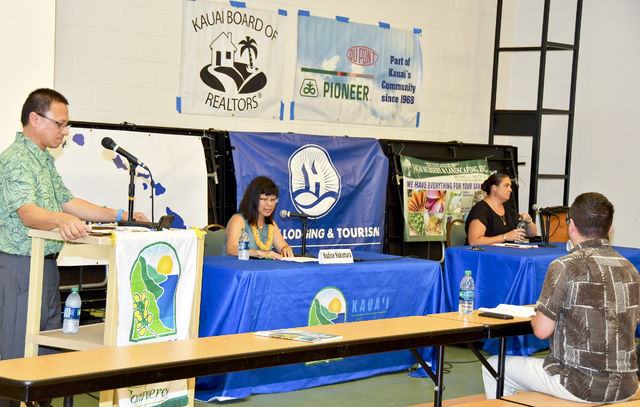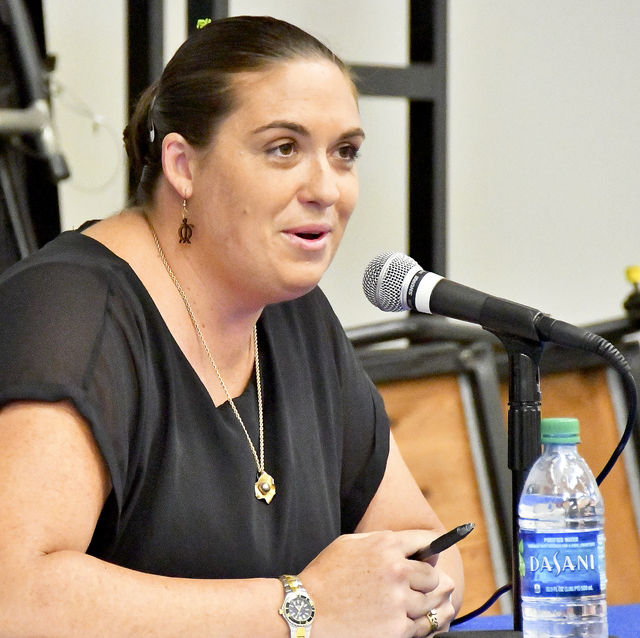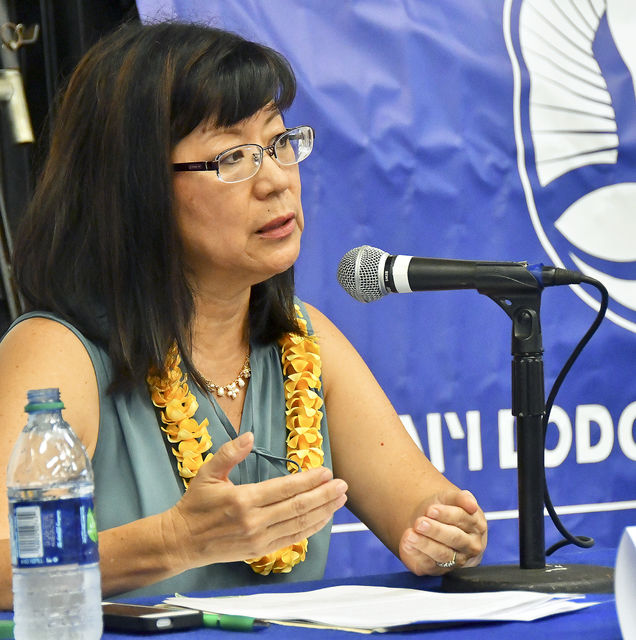KAPAA — From lifting the cap on the transient accommodation tax to finding a solution to homelessness, Nadine Nakamura and Fern Rosenstiel addressed issues facing Kauai before a full house in the Kapaa Middle School cafeteria Thursday night.
The women are vying for a seat in the House of Representatives, representing District 14. They are looking to take the place of Rep. Derek Kawakami, who is running for Kauai County Council.
“I’m excited to work for this seat because I’d like to work for a stronger and more vibrant Kauai and state of Hawaii. And that starts with strong, supportive families that are healthy, thriving and living a good quality of life,” Nakamura said.
If elected, one of her top priorities is ensuring that the rural character of the island is preserved, Rosenstiel said.
“It’s really important that we don’t overdevelop and we have foresight when it comes to traffic and transportation,” she said.
Nakamura, a former Kauai County councilwoman and county managing director, said she hopes to use her experience as a policymaker and administrator to benefit residents.
“A big part of (affordable housing) is looking for land that is free or subsidized because the cost of housing is so expensive to build,” she said.
She suggested working with the state to support projects like low-income tax credits and implementing rental housing funds.
“There’s a range of solutions, and we need to work between the county and the state to bring resources together,” she said.
When it comes to the transient accommodations tax, Nakamura said one way to lift the cap is to look for funds where the state and county have a joint interest in their budget.
“One project that comes to mind is the North Shore shuttle, where we could market some of the TAT funds for a specific purpose,” she said.
Road repair projects on the Eastside are another example of where the TAT money could be used, Nakamura said.
“That’s the way I’d like to look at it; to see what monies we can bring back to Kauai and use them for specific projects where both sides will benefit,” she said.
Rosenstiel said she also supported lifting the TAT.
“It’s really important the tourism industry pay its fair share to offset any impacts on heavy tourism in certain areas, so it’s important that we work to remove the cap,” she said.
Rosenstiel, who majored in wildlife management, environmental sciences and marine biology at Griffith University School of Environment in Australia, said she will bring “strong, transparent decision making that is based in integrity” to the House of Representatives.
“I will do it with passion and dedication to our community,” she said.
In order to address issues on the island, such as drug addiction, homelessness, affordable housing and cost of living, it’s important to note they are interconnected, Rosenstiel said.
“Addressing one issue isn’t going to solve the interconnected nature of drug abuse and addiction,” she said. “The cost of living is also connected with homelessness, so we need a comprehensive approach to the society issues that have gotten us to this position.”
Rosenstiel believes homelessness can be solved.
“If any place can address it, it’s Hawaii, where we have a welcoming aloha spirit and a dedication to helping each other,” she said.
She suggested programs such as bringing in tiny home villages.
“These solutions allow people to become stable and have a base to work from so they can address other issues they may have and get the services they need.”







